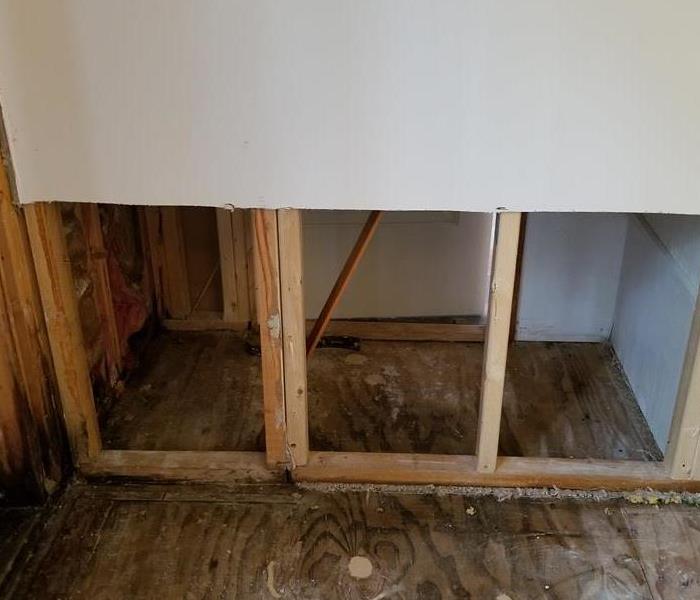Is Your Refrigerator Leaking? Signs to Watch Out For
7/24/2023 (Permalink)
Refrigerators play a crucial role in keeping our food fresh and preserving perishable items. However, a leaking refrigerator can be a cause for concern. Not only can it damage your kitchen floor or surrounding areas, but it may also indicate an underlying issue that needs attention. In this blog, we will discuss common signs that indicate your refrigerator is leaking and what steps you can take to address the problem.
Puddles or Water Stains
The most apparent sign of a leaking refrigerator is the presence of water puddles or stains on the floor near the appliance. If you notice water accumulating around the base of the refrigerator or spreading to adjacent areas, it's a clear indication that something is amiss.
Wet or Damp Interior
A leaking refrigerator may result in moisture buildup inside the unit. Check the walls, shelves, and drawers for any signs of wetness or excessive condensation. Damp or wet food items can also be an indicator of a leak.
Ice buildup inside the freezer beyond normal levels can be a sign of a leaking refrigerator. When the water from the defrost cycle doesn't drain properly, it can freeze and accumulate, leading to excessive ice formation.
Moldy or Unpleasant Odors
Moisture from a leaking refrigerator can create a conducive environment for mold and mildew growth. If you notice a musty or unpleasant odor coming from your refrigerator, it could be an indication of a hidden leak and subsequent mold development.
Unusual Sounds
While not directly related to leaks, unusual sounds like dripping, hissing, or gurgling coming from your refrigerator can be associated with a malfunctioning water line or a leak in the system. Pay attention to any unusual noises and investigate further if necessary.
Decreased Cooling Performance
A leaking refrigerator may affect its cooling efficiency. If you observe that the temperature inside the fridge or freezer is not as cold as it should be, it could be a result of a leak impacting the overall functionality of the appliance.
If your refrigerator has a water dispenser, a leak in the water line can cause problems. Check for water dripping from the dispenser or difficulty in obtaining water, as these issues may be linked to a leaking refrigerator.
Inspect the Water Supply Line
Check the water supply line at the back of the refrigerator for any cracks, loose connections, or signs of damage. Tighten or replace the line as necessary.
Clear Blocked Drain Tube. A clogged or frozen drain tube can cause water to back up and leak inside the refrigerator. Clear any blockages using a pipe cleaner or warm water to restore proper drainage.
Check the Door Seal
Faulty door seals can allow warm air to enter the refrigerator, leading to excess condensation and potential leaks. Inspect the seals and replace them if they are damaged or worn out.
Clean and Defrost the Freezer. Excessive ice buildup in the freezer can be a result of a leaking refrigerator. Turn off the unit, remove any food items, and allow it to defrost. Clean the freezer and ensure proper drainage after defrosting.
Seek Professional Help
If you're unable to identify or fix the source of the leak, it's advisable to contact a professional appliance repair technician. They have the expertise to diagnose and resolve complex issues associated with leaking refrigerators.
Detecting and addressing a leaking refrigerator in its early stages is essential to prevent further damage to your appliance and surrounding areas. By recognizing the signs of a leak and taking appropriate action, such as inspecting water supply lines, clearing blockages, and seeking professional assistance if needed, you can maintain the functionality and longevity of your refrigerator while avoiding potential water damage headaches.


 24/7 Emergency Service
24/7 Emergency Service
